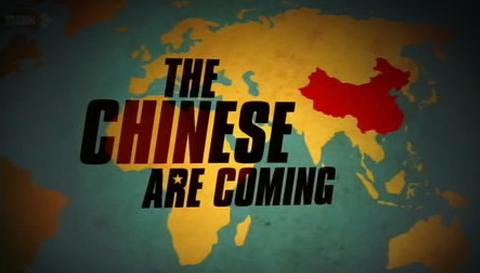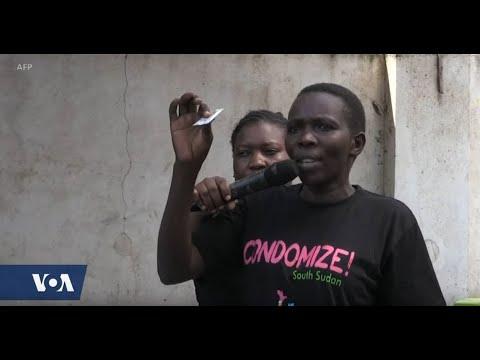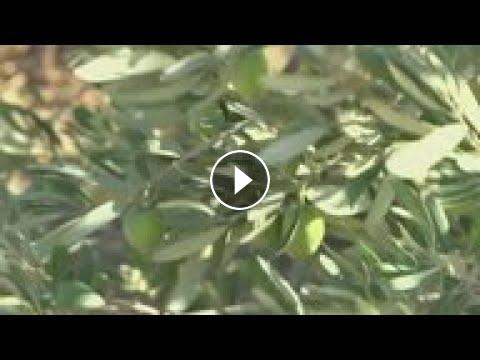(20 Aug 2020) LEAD IN:
Dwindling irrigation is threatening the livelihood of an Egyptian village.
An expert believes that Ethiopia's dam will be destructive to the whole Egyptian society.
STORY-LINE:
Once an oasis, farmlands at the far end of Egypt's Fayoum have been struggling with dwindling irrigation in recent years.
For four decades, Makhluf Abu Kassem and his family made their living growing corn, cotton and wheat when the region was fertile.
Now the 55-year-old farmer looks at what's left of his shriveling farm, surrounded by barren wasteland that was once his neighbors' farmland.
"The water supply is good for one year, then it dwindles the next year, until there was no (water). All our farmlands became barren," Abu Kassem says.
In the past, he and other villagers irrigated their farms through canals linked to the Nile River, Egypt's lifeline since ancient times.
It provides the country with a thin, richly fertile stretch of green land through the desert.
Now, Abu Kassem fears that a dam Ethiopia is building on the Blue Nile, the Nile's main tributary, could add to the severe water shortages already hitting his village if no deal is struck to ensure a continued flow of water.
"What if the gates of the dam are closed? How can we farm then? We are all going to die or leave the village for good," he said.
The exact impact of the dam on downstream countries Egypt and Sudan remains unknown.
Egypt is already spreading its water resources thin.
Its booming population, now over 100 million, has one of the lowest per capita shares of water in the world, at around 550 cubic meters per year, compared to a global average of 1,000.
Ethiopia says the electricity that will be generated by its Grand Ethiopian Renaissance Dam is a crucial lifeline to bring its nearly 110 million citizens out of poverty.
Egypt, which relies on the Nile for more than 90% of its water supplies, including drinking water, industrial use and irrigation, fears a devastating impact if the dam is operated without taking its needs into account.
"If the dam is filled and operated without coordination between Egypt and Ethiopia, its impact will be destructive to the Egyptian society and the state will not be able to address its repercussions," says Egypt's former Irrigation Minister Mohammed Nasr Allam.
Abu Kassem's village, with the bland bureaucratic name of Second Village, was one of multiple agricultural communities created in Egypt in the 1960s by the socialist government of President Gamal Abdel-Nasser.
Built on reclaimed desert, it depends for irrigation on the Yusuf Canal, which flows from the Nile through Fayoum, fanning out in a series of channels.
Almost all the Nile water that used to reach it is diverted into other agricultural projects or used for the growing population before it reaches Second Village, farmers say.
To irrigate, the village farmers now depend on wastewater from nearby towns, which is a mix of agricultural drainage and sewage.
On Abu Kassem's 16-acre farm, only a single acre is now cultivated.
With the water waning, many of the village's 12,000 people have left, including Abu Kassem's three brothers and his four sons.
Ihsan Abdel-Azim, 53, the wife of one of Abu Kassem's brothers, moved with her family to work as doormen in Cairo in 2001.
"We were happy before but when it became dry, it affected everyone and everyone left," the mother of five says, during a visit to the village earlier this month.
That sparked fear and confusion in Sudan and Egypt.
Find out more about AP Archive: http://www.aparchive.com/HowWeWork
Twitter: https://twitter.com/AP_Archive
Facebook: https://www.facebook.com/APArchives
Google+: https://plus.google.com/b/102011028589719587178/+APArchive
Tumblr: https://aparchives.tumblr.com/
Instagram: https://www.instagram.com/APNews/
You can license this story through AP Archive: http://www.aparchive.com/metadata/youtube/91eb4dbaa2504d5a86c9c5c36807d330
Dwindling irrigation is threatening the livelihood of an Egyptian village.
An expert believes that Ethiopia's dam will be destructive to the whole Egyptian society.
STORY-LINE:
Once an oasis, farmlands at the far end of Egypt's Fayoum have been struggling with dwindling irrigation in recent years.
For four decades, Makhluf Abu Kassem and his family made their living growing corn, cotton and wheat when the region was fertile.
Now the 55-year-old farmer looks at what's left of his shriveling farm, surrounded by barren wasteland that was once his neighbors' farmland.
"The water supply is good for one year, then it dwindles the next year, until there was no (water). All our farmlands became barren," Abu Kassem says.
In the past, he and other villagers irrigated their farms through canals linked to the Nile River, Egypt's lifeline since ancient times.
It provides the country with a thin, richly fertile stretch of green land through the desert.
Now, Abu Kassem fears that a dam Ethiopia is building on the Blue Nile, the Nile's main tributary, could add to the severe water shortages already hitting his village if no deal is struck to ensure a continued flow of water.
"What if the gates of the dam are closed? How can we farm then? We are all going to die or leave the village for good," he said.
The exact impact of the dam on downstream countries Egypt and Sudan remains unknown.
Egypt is already spreading its water resources thin.
Its booming population, now over 100 million, has one of the lowest per capita shares of water in the world, at around 550 cubic meters per year, compared to a global average of 1,000.
Ethiopia says the electricity that will be generated by its Grand Ethiopian Renaissance Dam is a crucial lifeline to bring its nearly 110 million citizens out of poverty.
Egypt, which relies on the Nile for more than 90% of its water supplies, including drinking water, industrial use and irrigation, fears a devastating impact if the dam is operated without taking its needs into account.
"If the dam is filled and operated without coordination between Egypt and Ethiopia, its impact will be destructive to the Egyptian society and the state will not be able to address its repercussions," says Egypt's former Irrigation Minister Mohammed Nasr Allam.
Abu Kassem's village, with the bland bureaucratic name of Second Village, was one of multiple agricultural communities created in Egypt in the 1960s by the socialist government of President Gamal Abdel-Nasser.
Built on reclaimed desert, it depends for irrigation on the Yusuf Canal, which flows from the Nile through Fayoum, fanning out in a series of channels.
Almost all the Nile water that used to reach it is diverted into other agricultural projects or used for the growing population before it reaches Second Village, farmers say.
To irrigate, the village farmers now depend on wastewater from nearby towns, which is a mix of agricultural drainage and sewage.
On Abu Kassem's 16-acre farm, only a single acre is now cultivated.
With the water waning, many of the village's 12,000 people have left, including Abu Kassem's three brothers and his four sons.
Ihsan Abdel-Azim, 53, the wife of one of Abu Kassem's brothers, moved with her family to work as doormen in Cairo in 2001.
"We were happy before but when it became dry, it affected everyone and everyone left," the mother of five says, during a visit to the village earlier this month.
That sparked fear and confusion in Sudan and Egypt.
Find out more about AP Archive: http://www.aparchive.com/HowWeWork
Twitter: https://twitter.com/AP_Archive
Facebook: https://www.facebook.com/APArchives
Google+: https://plus.google.com/b/102011028589719587178/+APArchive
Tumblr: https://aparchives.tumblr.com/
Instagram: https://www.instagram.com/APNews/
You can license this story through AP Archive: http://www.aparchive.com/metadata/youtube/91eb4dbaa2504d5a86c9c5c36807d330
Be the first to comment









